Exploring Policy and Ethical Issues in Health and Social Care
VerifiedAdded on 2023/01/19
|6
|1196
|55
Essay
AI Summary
This essay provides an overview of the importance of policy and ethics within the health and social care sector, particularly in the context of the UK's National Health Service (NHS). It examines key legislation such as the Health and Social Care Act 2012 and the Emergency Medical Treatment and Active Labour Act (EMTALA), highlighting their impact on patient rights and the responsibilities of healthcare providers. The essay discusses the complex hierarchical structure of the NHS and the importance of ethical practices, including data protection and patient confidentiality. It concludes by emphasizing the role of legislation and ethics in improving healthcare standards and promoting the well-being of service users, with a focus on patient-centric approaches and social values to reduce inequalities in healthcare.
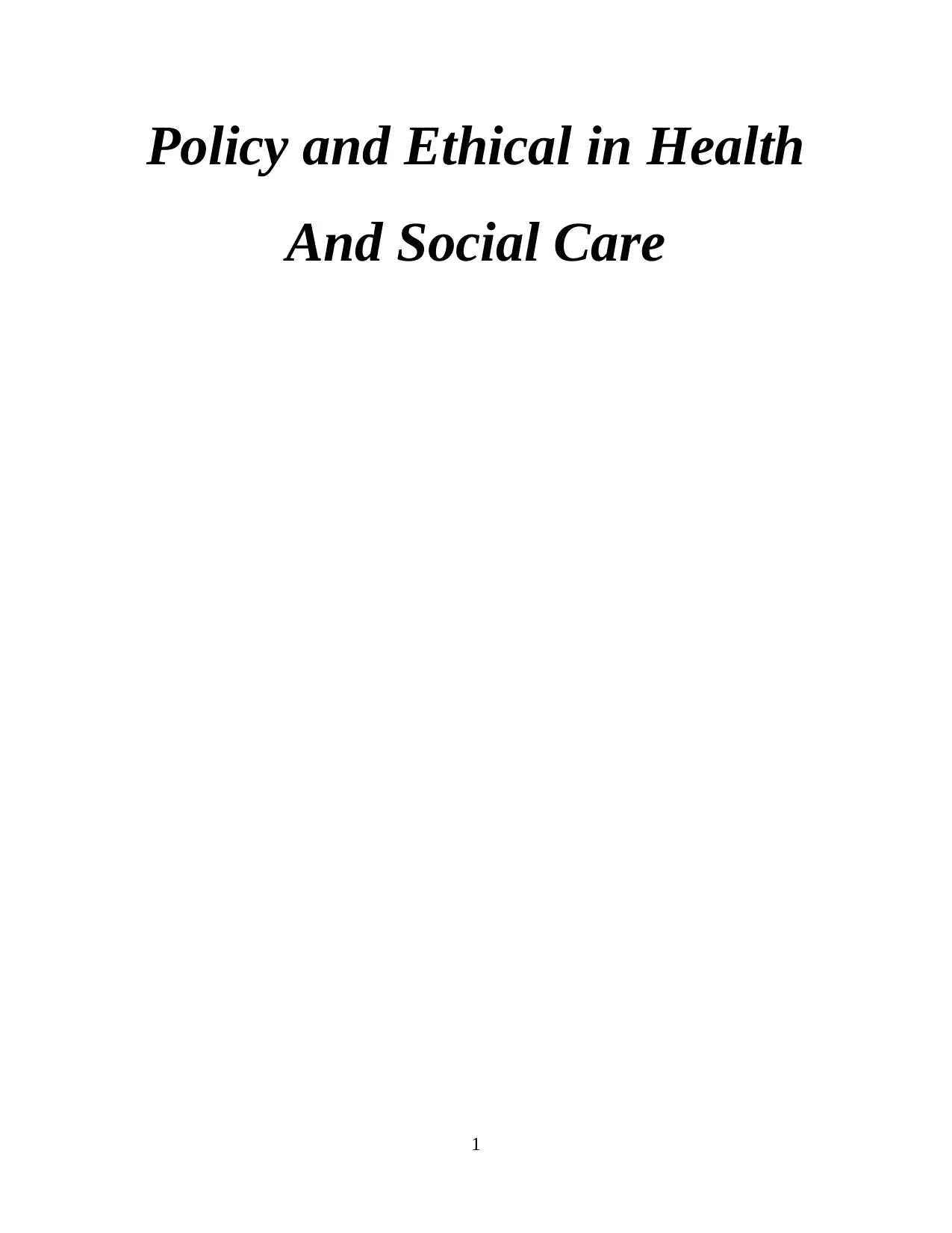
Policy and Ethical in Health
And Social Care
1
And Social Care
1
Paraphrase This Document
Need a fresh take? Get an instant paraphrase of this document with our AI Paraphraser
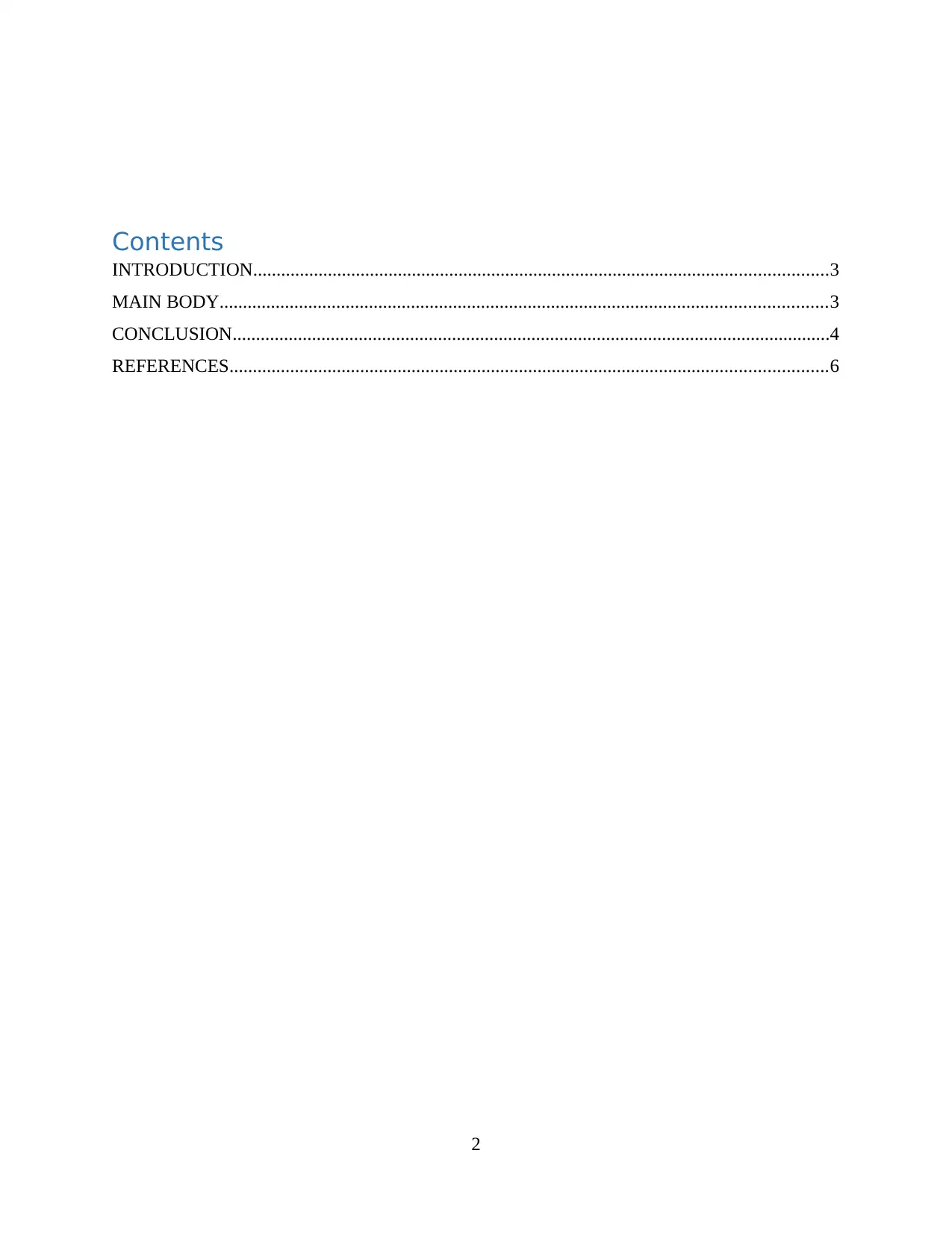
Contents
INTRODUCTION...........................................................................................................................3
MAIN BODY..................................................................................................................................3
CONCLUSION................................................................................................................................4
REFERENCES................................................................................................................................6
2
INTRODUCTION...........................................................................................................................3
MAIN BODY..................................................................................................................................3
CONCLUSION................................................................................................................................4
REFERENCES................................................................................................................................6
2
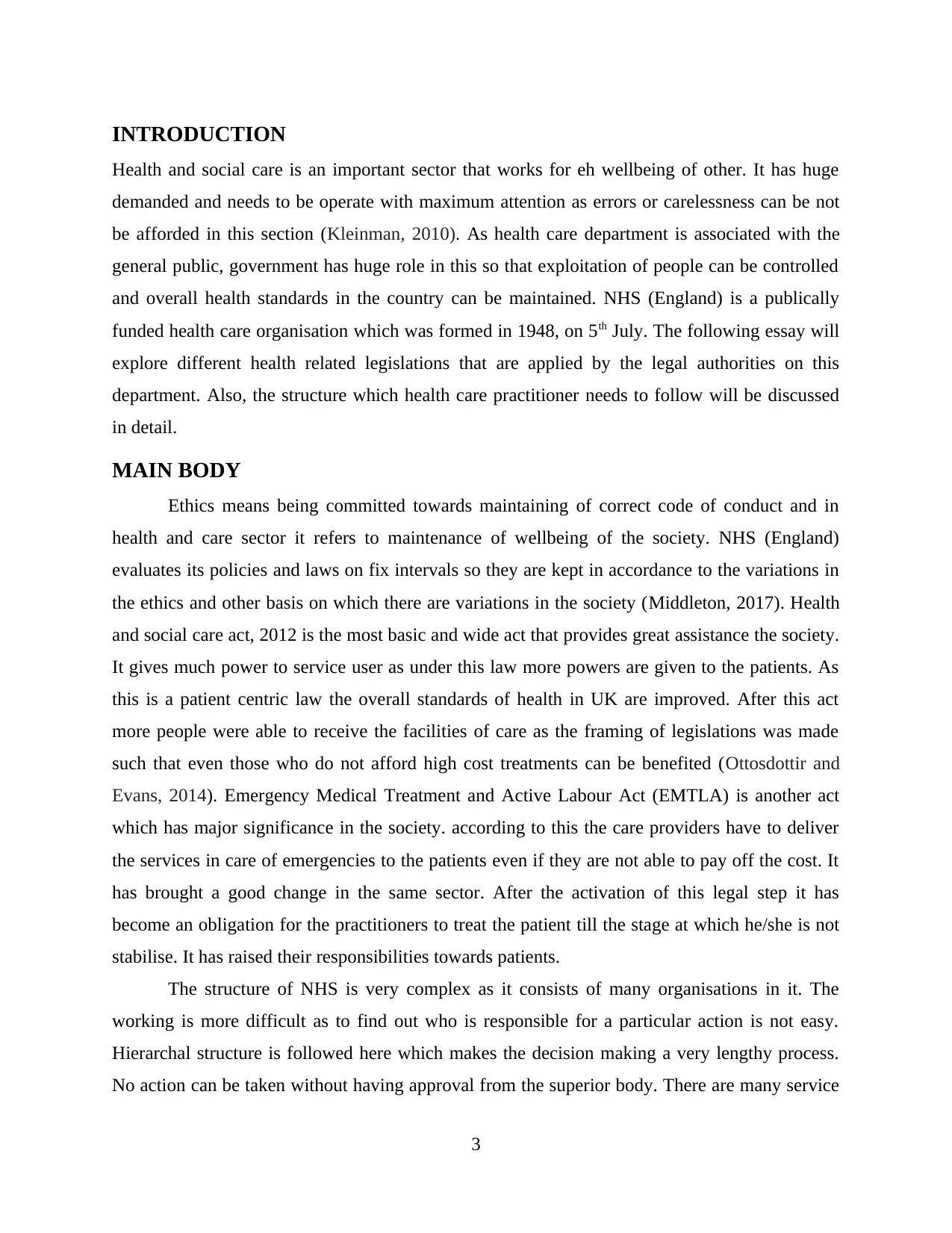
INTRODUCTION
Health and social care is an important sector that works for eh wellbeing of other. It has huge
demanded and needs to be operate with maximum attention as errors or carelessness can be not
be afforded in this section (Kleinman, 2010). As health care department is associated with the
general public, government has huge role in this so that exploitation of people can be controlled
and overall health standards in the country can be maintained. NHS (England) is a publically
funded health care organisation which was formed in 1948, on 5th July. The following essay will
explore different health related legislations that are applied by the legal authorities on this
department. Also, the structure which health care practitioner needs to follow will be discussed
in detail.
MAIN BODY
Ethics means being committed towards maintaining of correct code of conduct and in
health and care sector it refers to maintenance of wellbeing of the society. NHS (England)
evaluates its policies and laws on fix intervals so they are kept in accordance to the variations in
the ethics and other basis on which there are variations in the society (Middleton, 2017). Health
and social care act, 2012 is the most basic and wide act that provides great assistance the society.
It gives much power to service user as under this law more powers are given to the patients. As
this is a patient centric law the overall standards of health in UK are improved. After this act
more people were able to receive the facilities of care as the framing of legislations was made
such that even those who do not afford high cost treatments can be benefited (Ottosdottir and
Evans, 2014). Emergency Medical Treatment and Active Labour Act (EMTLA) is another act
which has major significance in the society. according to this the care providers have to deliver
the services in care of emergencies to the patients even if they are not able to pay off the cost. It
has brought a good change in the same sector. After the activation of this legal step it has
become an obligation for the practitioners to treat the patient till the stage at which he/she is not
stabilise. It has raised their responsibilities towards patients.
The structure of NHS is very complex as it consists of many organisations in it. The
working is more difficult as to find out who is responsible for a particular action is not easy.
Hierarchal structure is followed here which makes the decision making a very lengthy process.
No action can be taken without having approval from the superior body. There are many service
3
Health and social care is an important sector that works for eh wellbeing of other. It has huge
demanded and needs to be operate with maximum attention as errors or carelessness can be not
be afforded in this section (Kleinman, 2010). As health care department is associated with the
general public, government has huge role in this so that exploitation of people can be controlled
and overall health standards in the country can be maintained. NHS (England) is a publically
funded health care organisation which was formed in 1948, on 5th July. The following essay will
explore different health related legislations that are applied by the legal authorities on this
department. Also, the structure which health care practitioner needs to follow will be discussed
in detail.
MAIN BODY
Ethics means being committed towards maintaining of correct code of conduct and in
health and care sector it refers to maintenance of wellbeing of the society. NHS (England)
evaluates its policies and laws on fix intervals so they are kept in accordance to the variations in
the ethics and other basis on which there are variations in the society (Middleton, 2017). Health
and social care act, 2012 is the most basic and wide act that provides great assistance the society.
It gives much power to service user as under this law more powers are given to the patients. As
this is a patient centric law the overall standards of health in UK are improved. After this act
more people were able to receive the facilities of care as the framing of legislations was made
such that even those who do not afford high cost treatments can be benefited (Ottosdottir and
Evans, 2014). Emergency Medical Treatment and Active Labour Act (EMTLA) is another act
which has major significance in the society. according to this the care providers have to deliver
the services in care of emergencies to the patients even if they are not able to pay off the cost. It
has brought a good change in the same sector. After the activation of this legal step it has
become an obligation for the practitioners to treat the patient till the stage at which he/she is not
stabilise. It has raised their responsibilities towards patients.
The structure of NHS is very complex as it consists of many organisations in it. The
working is more difficult as to find out who is responsible for a particular action is not easy.
Hierarchal structure is followed here which makes the decision making a very lengthy process.
No action can be taken without having approval from the superior body. There are many service
3
⊘ This is a preview!⊘
Do you want full access?
Subscribe today to unlock all pages.

Trusted by 1+ million students worldwide
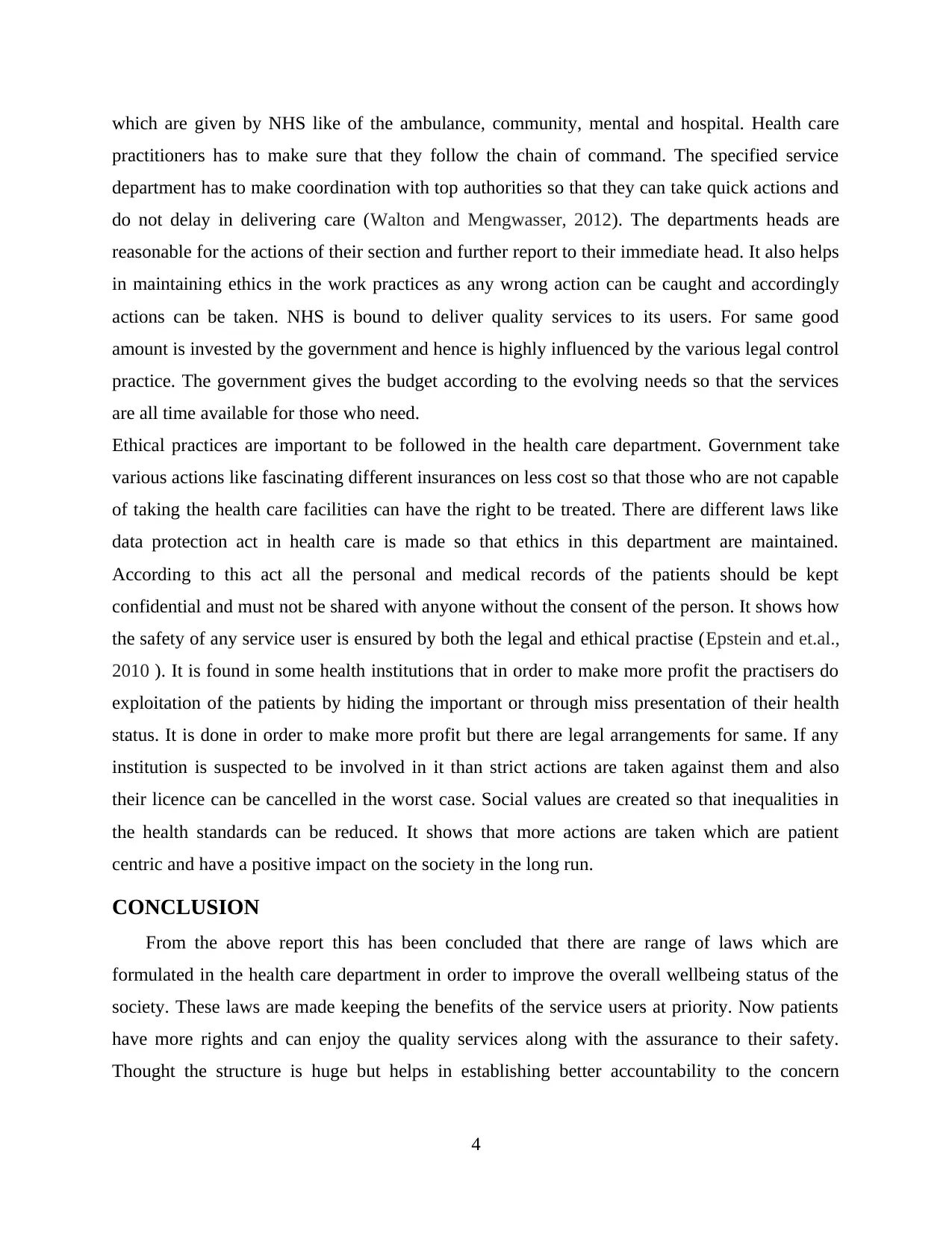
which are given by NHS like of the ambulance, community, mental and hospital. Health care
practitioners has to make sure that they follow the chain of command. The specified service
department has to make coordination with top authorities so that they can take quick actions and
do not delay in delivering care (Walton and Mengwasser, 2012). The departments heads are
reasonable for the actions of their section and further report to their immediate head. It also helps
in maintaining ethics in the work practices as any wrong action can be caught and accordingly
actions can be taken. NHS is bound to deliver quality services to its users. For same good
amount is invested by the government and hence is highly influenced by the various legal control
practice. The government gives the budget according to the evolving needs so that the services
are all time available for those who need.
Ethical practices are important to be followed in the health care department. Government take
various actions like fascinating different insurances on less cost so that those who are not capable
of taking the health care facilities can have the right to be treated. There are different laws like
data protection act in health care is made so that ethics in this department are maintained.
According to this act all the personal and medical records of the patients should be kept
confidential and must not be shared with anyone without the consent of the person. It shows how
the safety of any service user is ensured by both the legal and ethical practise (Epstein and et.al.,
2010 ). It is found in some health institutions that in order to make more profit the practisers do
exploitation of the patients by hiding the important or through miss presentation of their health
status. It is done in order to make more profit but there are legal arrangements for same. If any
institution is suspected to be involved in it than strict actions are taken against them and also
their licence can be cancelled in the worst case. Social values are created so that inequalities in
the health standards can be reduced. It shows that more actions are taken which are patient
centric and have a positive impact on the society in the long run.
CONCLUSION
From the above report this has been concluded that there are range of laws which are
formulated in the health care department in order to improve the overall wellbeing status of the
society. These laws are made keeping the benefits of the service users at priority. Now patients
have more rights and can enjoy the quality services along with the assurance to their safety.
Thought the structure is huge but helps in establishing better accountability to the concern
4
practitioners has to make sure that they follow the chain of command. The specified service
department has to make coordination with top authorities so that they can take quick actions and
do not delay in delivering care (Walton and Mengwasser, 2012). The departments heads are
reasonable for the actions of their section and further report to their immediate head. It also helps
in maintaining ethics in the work practices as any wrong action can be caught and accordingly
actions can be taken. NHS is bound to deliver quality services to its users. For same good
amount is invested by the government and hence is highly influenced by the various legal control
practice. The government gives the budget according to the evolving needs so that the services
are all time available for those who need.
Ethical practices are important to be followed in the health care department. Government take
various actions like fascinating different insurances on less cost so that those who are not capable
of taking the health care facilities can have the right to be treated. There are different laws like
data protection act in health care is made so that ethics in this department are maintained.
According to this act all the personal and medical records of the patients should be kept
confidential and must not be shared with anyone without the consent of the person. It shows how
the safety of any service user is ensured by both the legal and ethical practise (Epstein and et.al.,
2010 ). It is found in some health institutions that in order to make more profit the practisers do
exploitation of the patients by hiding the important or through miss presentation of their health
status. It is done in order to make more profit but there are legal arrangements for same. If any
institution is suspected to be involved in it than strict actions are taken against them and also
their licence can be cancelled in the worst case. Social values are created so that inequalities in
the health standards can be reduced. It shows that more actions are taken which are patient
centric and have a positive impact on the society in the long run.
CONCLUSION
From the above report this has been concluded that there are range of laws which are
formulated in the health care department in order to improve the overall wellbeing status of the
society. These laws are made keeping the benefits of the service users at priority. Now patients
have more rights and can enjoy the quality services along with the assurance to their safety.
Thought the structure is huge but helps in establishing better accountability to the concern
4
Paraphrase This Document
Need a fresh take? Get an instant paraphrase of this document with our AI Paraphraser
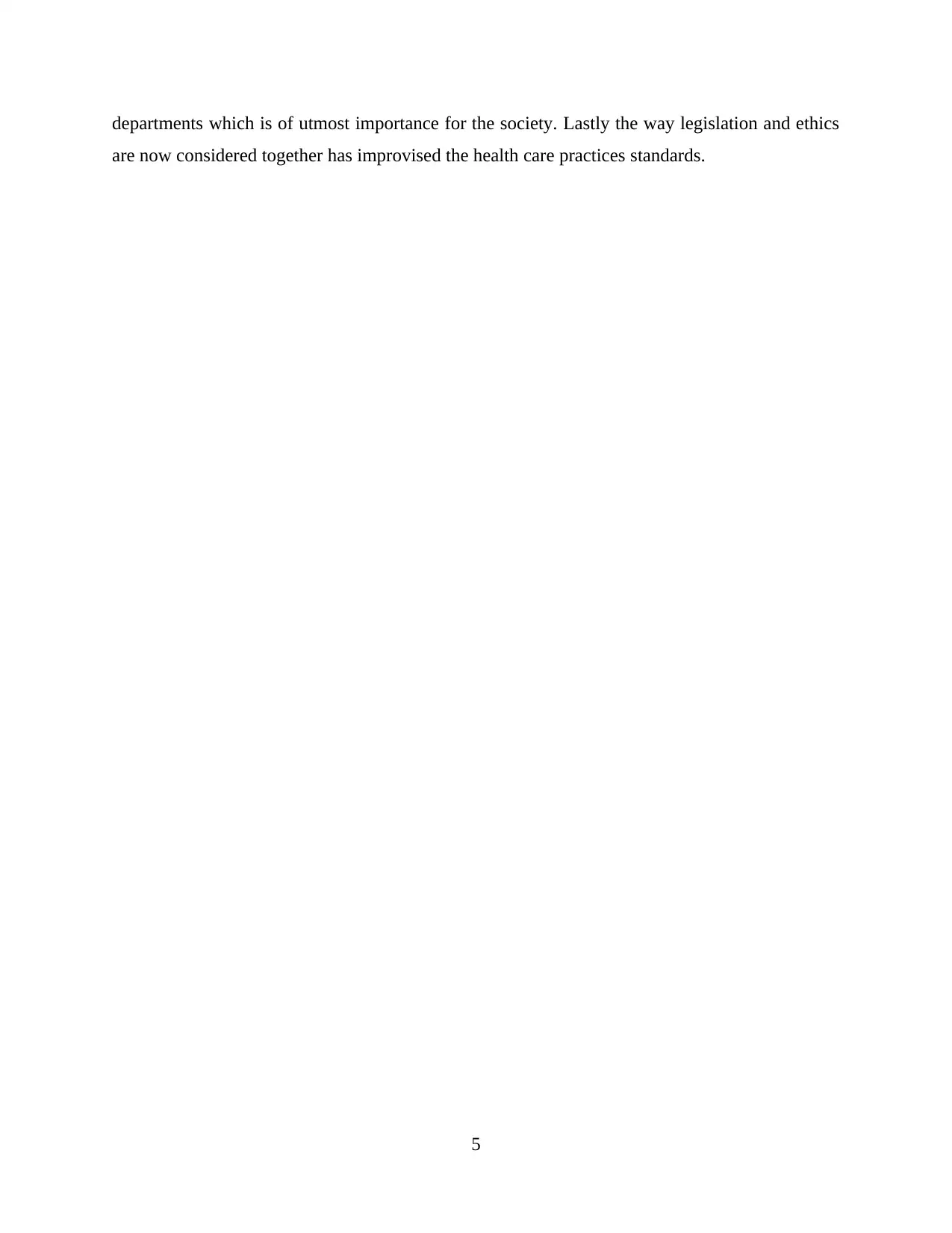
departments which is of utmost importance for the society. Lastly the way legislation and ethics
are now considered together has improvised the health care practices standards.
5
are now considered together has improvised the health care practices standards.
5
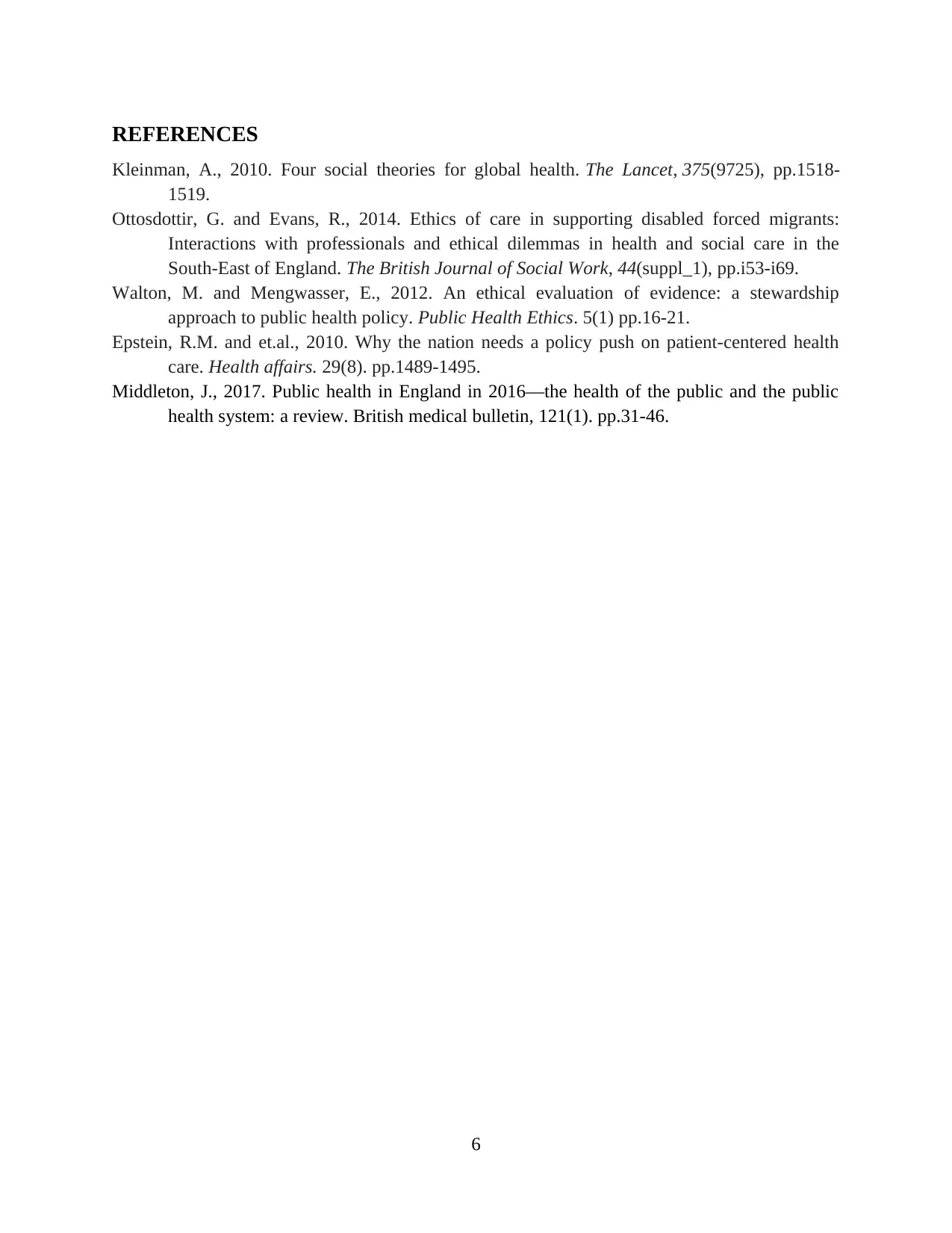
REFERENCES
Kleinman, A., 2010. Four social theories for global health. The Lancet, 375(9725), pp.1518-
1519.
Ottosdottir, G. and Evans, R., 2014. Ethics of care in supporting disabled forced migrants:
Interactions with professionals and ethical dilemmas in health and social care in the
South-East of England. The British Journal of Social Work, 44(suppl_1), pp.i53-i69.
Walton, M. and Mengwasser, E., 2012. An ethical evaluation of evidence: a stewardship
approach to public health policy. Public Health Ethics. 5(1) pp.16-21.
Epstein, R.M. and et.al., 2010. Why the nation needs a policy push on patient-centered health
care. Health affairs. 29(8). pp.1489-1495.
Middleton, J., 2017. Public health in England in 2016—the health of the public and the public
health system: a review. British medical bulletin, 121(1). pp.31-46.
6
Kleinman, A., 2010. Four social theories for global health. The Lancet, 375(9725), pp.1518-
1519.
Ottosdottir, G. and Evans, R., 2014. Ethics of care in supporting disabled forced migrants:
Interactions with professionals and ethical dilemmas in health and social care in the
South-East of England. The British Journal of Social Work, 44(suppl_1), pp.i53-i69.
Walton, M. and Mengwasser, E., 2012. An ethical evaluation of evidence: a stewardship
approach to public health policy. Public Health Ethics. 5(1) pp.16-21.
Epstein, R.M. and et.al., 2010. Why the nation needs a policy push on patient-centered health
care. Health affairs. 29(8). pp.1489-1495.
Middleton, J., 2017. Public health in England in 2016—the health of the public and the public
health system: a review. British medical bulletin, 121(1). pp.31-46.
6
⊘ This is a preview!⊘
Do you want full access?
Subscribe today to unlock all pages.

Trusted by 1+ million students worldwide
1 out of 6
Related Documents
Your All-in-One AI-Powered Toolkit for Academic Success.
+13062052269
info@desklib.com
Available 24*7 on WhatsApp / Email
![[object Object]](/_next/static/media/star-bottom.7253800d.svg)
Unlock your academic potential
Copyright © 2020–2025 A2Z Services. All Rights Reserved. Developed and managed by ZUCOL.





